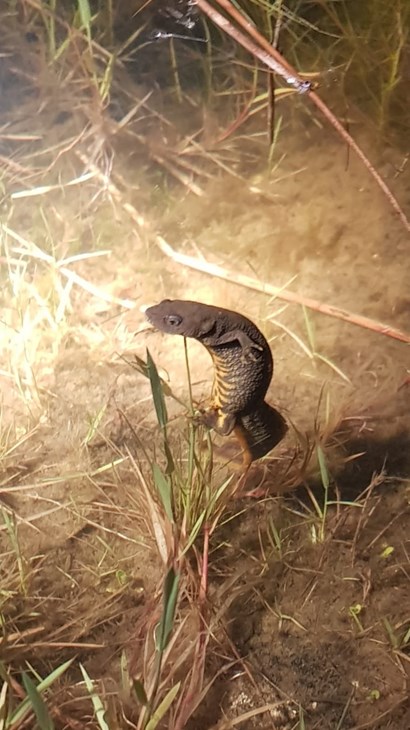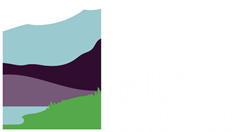Wildlife Surveys

At Wild Ground, the spring is one of our busiest times of the year, just like it is for so many of our birds and animal species that are searching, searching for nesting sites, searching for mates, and searching for the best foraging areas. Well, we at Wild Ground are searching too, searching for newts!
The spring brings with it longer and warmer days, and great crested newts begin to move from their winter hibernacula to their breeding ponds. This is the season when we don our torches to carry out our annual night-time great crested newt surveys, covering some 160 ponds across all our nature reserves and managed areas.
Great crested newts are a European Protected Species, and we manage a suite of sites for their benefit, for other amphibians, and for wildlife in general. The annual great crested newt surveys in which we participate are conducted under a special licence to detect the presence and get a measure of the species’ abundance.
The surveys are coordinated with partners to collate data across wider areas. The data collected as part of this important annual surveillance can be fed into some very large datasets, that can in turn be extrapolated and modelled, to help build a picture of how local populations are faring. This is turn, can give early warnings of where populations appear to be in trouble, and help inform appropriate management activities designed to benefit great crested newts.
Although great crested newts and other amphibians are our primary focus during our surveys, we also see a surprising array of other mainly nocturnal creatures while we’re out and about in the countryside with our torches. We commonly see other aquatic species, including smooth or common newts, palmate newts, frogs and toads. We also regularly come across wetland birds, owls, bats, foxes, badgers and deer, and occasionally encounter some more unusual wildlife too, such as water voles, water shrew, water stick insects and water scorpions!
The night-time pondscape environment is a completely different world than we’re used to in most instances; it can bring with it a wonderful array of sightings that you don’t usually get during daytime hours!
Here’s looking forward to another successful Season of Searching!
